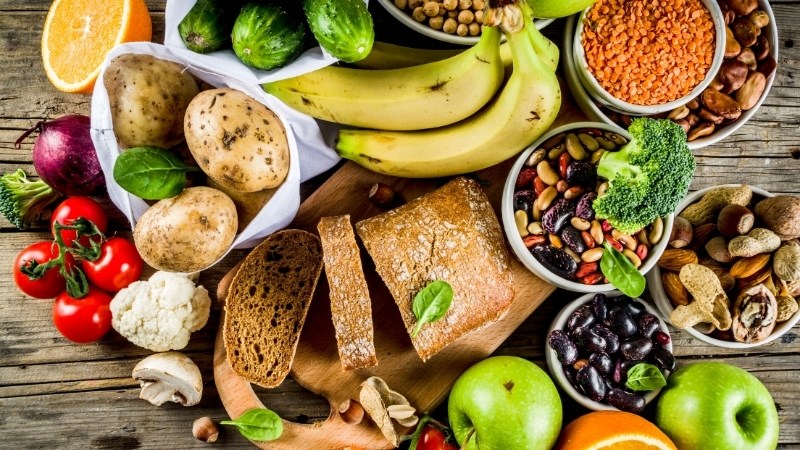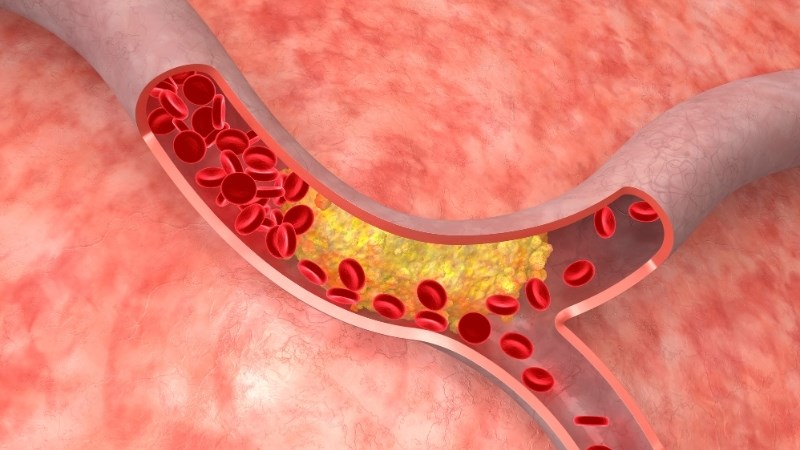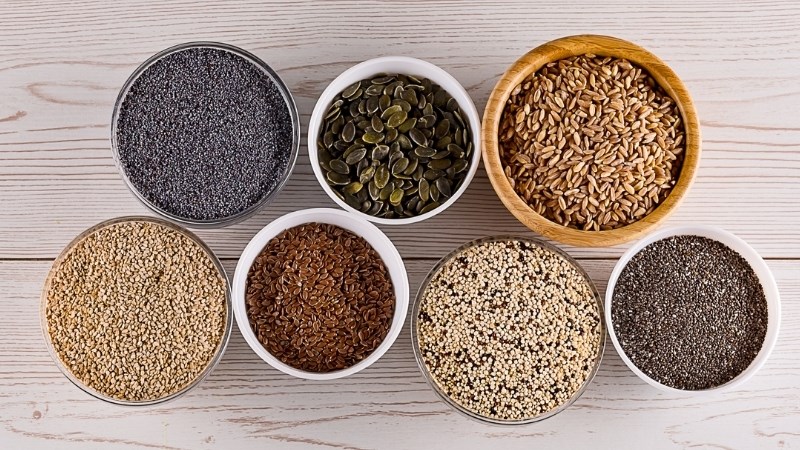Fiber is an essential nutrient for a healthy diet, found in vegetables, fruits and nuts. It has the effect of reducing blood fat, controlling blood sugar and weight. Let’s learn about the types of fiber and the role of fiber in health through the article below!
1. What is fiber?
Fiber, which comes from plant foods, is a component that the body cannot digest. However, unlike fat, protein or other carbohydrates, our bodies cannot metabolize and absorb fiber on their own. Therefore, fiber is an essential nutrient for a healthy diet.
Fiber is beneficial for the cardiovascular system, digestion and weight control, and is found in vegetables, fruits and nuts.

Fiber is an essential nutrient for a healthy diet.
2. Classification of fiber
Fiber in foods includes 2 main types:
- Soluble fiber: this type of fiber dissolves in water to form a gel-like material and is metabolized by beneficial bacteria in the intestines. It can help reduce cholesterol and glucose levels in the blood. Soluble fiber is found in oats, peas, beans, apples, citrus fruits, carrots, barley and psyllium.
- Insoluble fiber: does not dissolve in water, helps prevent constipation. It is abundant in whole wheat flour, wheat bran, nuts, beans and vegetables such as cauliflower, green beans and potatoes.
3. Why do we need to supplement fiber?
Our body needs to be supplemented with fiber every day because it brings many important health benefits such as reducing blood fat, increasing intestinal motility, controlling blood sugar and weight. Thereby, helping the body prevent cardiovascular diseases, digestive diseases, diabetes and dyslipidemia, overweight – obesity.
4. Effects of fiber on the body
Helps maintain intestinal health
Fiber is an important part of maintaining intestinal health. Eating enough fiber can increase intestinal motility and prevent constipation.
This reduces the time waste stays in the intestines, and has a positive effect on preventing intestinal diseases such as ulcerative colitis, diverticulitis, etc.

Fiber may help prevent colitis and diverticulitis
Helps relieve constipation
Fiber helps increase the volume and soften the stool, thereby promoting intestinal contractions and making bowel movements easier. Therefore, a high-fiber diet can help improve constipation as well as reduce the risk of hemorrhoids by reducing straining and bowel movements.

Fiber can help treat constipation
Controlling blood sugar
Fiber helps slow down the metabolism and absorption of food, preventing blood sugar levels from rising suddenly after meals. This is important in preventing diabetes as well as supporting blood sugar control in people with diabetes.

Fiber helps prevent blood sugar from rising suddenly after meals.
Reduce blood cholesterol
Soluble fiber helps reduce the absorption of fat and cholesterol in food, thereby reducing LDL cholesterol in the blood and protecting cardiovascular health.
High LDL (bad) cholesterol in the blood causes atherosclerosis and damage to blood vessels. Especially in the elderly and people with high blood pressure, high blood cholesterol can lead to the risk of coronary artery disease, myocardial infarction, stroke…

Fiber helps reduce blood LDL cholesterol
Weight Management
Fiber is low in calories and helps maintain a feeling of fullness for longer after meals. Therefore, a diet high in fiber helps manage weight effectively and is an indispensable part of the menu for people who want to lose weight.

Fiber helps manage weight effectively
Prolonging life
Atherosclerosis, diabetes, digestive disorders… are common health problems in the elderly. Fiber brings many benefits to general health and prevents chronic diseases, thereby helping to prolong life.

Fiber helps prevent many health problems in the elderly
5. How to use fiber properly, safely and effectively
To supplement fiber properly, safely and effectively, you need to note the following points:
- Prioritize choosing fresh foods rich in fiber instead of processed products.
- Add about 5 grams of fiber every morning with whole grains or fruit.
- Change the habit of using processed grains such as pasta, bread, white flour, white rice without bran… with whole grains such as brown rice, barley, corn, millet…
- Supplement fiber with fiber-rich foods such as peas, lentils, fresh fruits and vegetables.
- Add beans, nuts to salads or side dishes.
- Eat fresh fruit including the skin instead of peeling it, because the skin is rich in fiber.
- Fresh fruit, raw vegetables, low-fat popcorn and whole-grain crackers are good choices for snacks. Additionally, a handful of nuts or dried fruit is also a nutritious, fiber-rich snack, but be careful because they are high in calories.

You should use whole grains instead of processed grain products.
6. How much fiber should you consume each day?
Supplementing enough fiber daily helps the body prevent many health problems. The recommended daily fiber intake may vary depending on gender and age, specifically:
| Object | Under 50 years old | Over 50 years old |
| Male | 38 gam | 30 gam |
| Female | 25 gam | 21 gam |
7. Is it good to consume too much fiber?
Although fiber is very good for the body, consuming too much fiber can cause symptoms such as bloating, flatulence or constipation. Therefore, it is best to gradually increase the amount of fiber in your diet each week and should not consume more than 70 grams of fiber in a day to avoid side effects due to excessive fiber consumption.

Eating too much fiber can cause bloating and flatulence.
8. Common side effects when using fiber
Unwanted effects when using fiber are often related to supplementing too much fiber or suddenly changing a high-fiber diet. This causes the beneficial bacteria in the intestines to not have time to adapt and cannot consume the large amount of fiber taken in.
At that time, the amount of fiber that is not metabolized can hinder the absorption of other nutrients with symptoms such as abdominal pain, nausea, constipation, etc. In addition, this amount of fiber also promotes fermentation and gas production, causing bloating and flatulence.
9. Fiber Supplements
Plant-based foods are a rich source of fiber. Some common foods that are rich in fiber include: whole grains, green beans, black beans, lentils, broccoli, sweet potatoes, carrots, beets, pears, strawberries, apples, avocados, oranges and bananas…
Adding fiber-rich foods to your daily diet helps improve overall health and effectively control weight. Please share the article with everyone if you find it useful!





